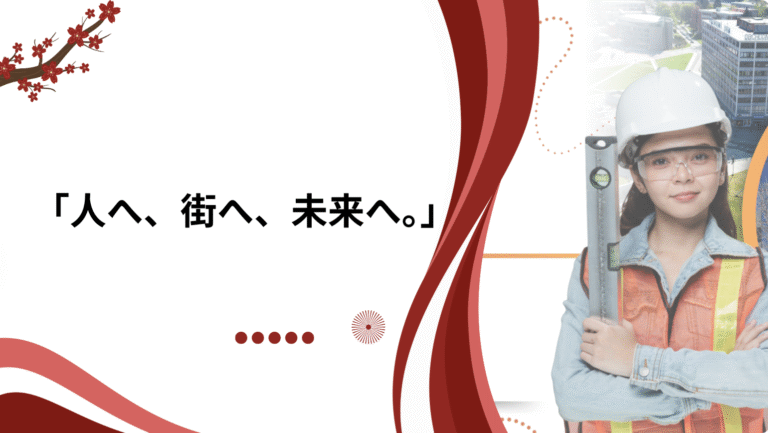Business In Japan: Before "Stakeholders First" Was Cool

This morning, on a packed Tokyo train, I saw a commercial of one of the railway companies that make sure that everybody in this beautiful city gets to their destination in a safe and affordable way. What caught my eye was the last line:「人へ、街へ、未来へ。」(To people, to cities, to the future.)
At first glance, the line read like a classic brand slogan. To my non-native Japanese mind, it sounded aspirational, poetic, and vaguely futuristic. It also reminded me of the Japanese companies I had worked for in the past and it felt so very familiar. Put in the context of Japanese business culture, this simple phrase is the expression of something much deeper: the understanding of business as a civic responsibility, not just a commercial one.
We often hear non-Japanese say that the business practices here are outdated, the processes are too slow and worst of all, companies are inefficient. After all, time is money, isn’t it? The shorter the PDFA, the higher the revenue. And yet, although all that is true, we have little choice but to say that in spite of being slow and inefficient, many Japanese companies continue to survive these shortcomings. Not only that but they are looking well into the future. And that future is not the next quarter. It is what awaits them in 10, 20 or 50-year time.
Serving society at large as opposed to serving only the shareholders is a defining feature of Japan’s corporate landscape. In the beginning, it could be frustrating, even maddening. But the longer we live and work here, the more we get to appreciate its outcomes.
The business of belonging: From shareholders to stakeholders
In many Western contexts, business success is often defined by profitability, disruption, and scale. In Japan, however, the underlying question is different: How does the business serve society?
Japanese businesses often see themselves as integrated social actors. This mindset is historically rooted in Confucian ideals of harmony and Shinto reverence for community. Rather than a separate, standalone entity the company is part of the community fabric, with duties to uphold.
This perspective has shaped everything from employment practices to urban development. While it was created through different historical developments, it continues to influence how Japanese companies operate today.
Employees as stakeholders
Although there are some companies that operate in the gray zone of the Japanese economy, many corporations and long-standing businesses still place a strong emphasis on employee well-being. Regardless of their short-term performance, many employees still benefit from housing subsidies, senpai-kohai mentorship programs, in-house training, partnerships with health providers, 社員旅行 (corporate trips), etc. Unsurprisingly, some of these practices intensified during and after the Covid-19 pandemic.
For decades, the lifetime employment model (終身雇用) gave workers not only job security but also a sense of identity and belonging. Even today, if you walk through Marunouch, Shinjuku, Roppongi or Akasaka on a weekday, you will see many a salaryman wearing their company’s badge on their lapels.
Even though demographic and labor market changes are reshaping this model, the idea of mutual obligation between employer and employee remains strong. By unwritten mutual agreement, work is seen as a relationship rather than a transaction.
Business as a community builder
In Japan, companies don’t just operate in communities. They help build them. If we take Odakyu, one of Japan’s railway companies as an example, it is easy to see that the company has developed entire neighborhoods as it continues to extend the train lines further. These neighborhoods come with shopping malls, schools, housing, and green spaces. The profits are tied to livability and long-term urban planning. While in the West, ticket sales and profitability come first, the Japanese believe that when the city thrives, so does the company. And this type of profitability begins with contribution rather than conquest.
The Japanese think in generations, not quarters
Japanese companies are slow to pivot. The most obvious reasons for this are conservatism, rigidity, and unwillingness to change. But if we consider the time and energy devoted to building communities and to ensuring employees’ well-being, we will see a commitment to legacy and continuity. In Japan, products are designed to last. Brand reputation is protected like family honor. Decisions are made upon the consensus of all parties involved. This long-term view prioritizes relationship and operational sustainability, trust, and social contract over short-term wins.
Growth? What does it mean?
For over two decades now, there have been loud voices urging Japan to change, become more efficient, more profit-oriented, increase the shareholder influence on the company’s decisions. This push for “westernization” of Japanese business practices would most probably be welcome by foreign investors. Meanwhile, if Japan is too keen on ensuring next-quarter profitability and continuous growth, Japan might run the risk of losing the values that make its society what it is today: trust, continuity, and social contract.
For somebody like me who has lived and worked here for over two decades, Japan’s stakeholder-first approach feels more relevant than ever.
And while Japan’s corporate mindset may not be universally applicable, the values embedded in phrases like 「人へ、街へ、未来へ。」 are worth reflecting upon. Because the real measure of success isn’t what a company builds for itself, but what it builds around itself.
Have a look at this article, too. You might find it interesting.
